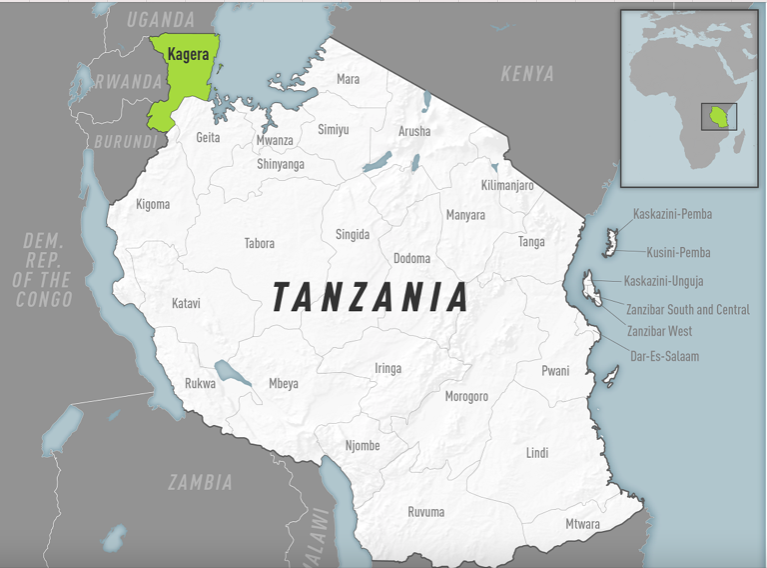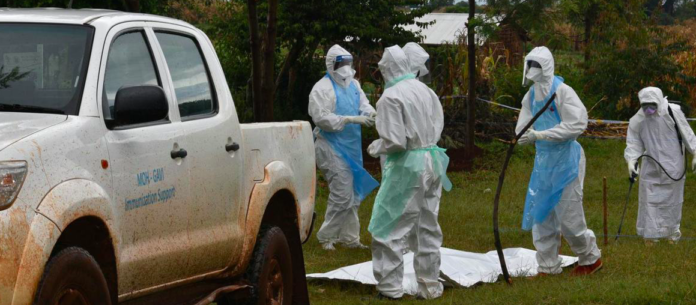By Winnie Kamau
Nairobi, Kenya: Tanzania today confirmed its first-ever cases of Marburg Virus Disease after laboratory tests were carried out following reports of cases and deaths in the country’s north-west Kagera region.
According to the World Health Organization (WHO) reported that Tanzania’s National Public Health Laboratory analyzed samples to determine the cause of illness after eight people developed symptoms including fever, vomiting, bleeding and renal failure. Five of the eight cases, including a health worker, have died and the remaining three are receiving treatment. A total of 161 contacts have been identified and being monitored.
“The efforts by Tanzania’s health authorities to establish the cause of the disease is a clear indication of the determination to effectively respond to the outbreak. We are working with the government to rapidly scale up control measures to halt the spread of the virus and end the outbreak as soon as possible,” said Dr Matshidiso Moeti, World Health Organization (WHO) Regional Director for Africa.
WHO said they are supporting the Ministry of Health in Tanzania to deploy an emergency team to Kagera to carry out further epidemiological investigations. Kagera region is located in north-western Tanzania and is bordered by Uganda to the north, Rwanda to the west and Burundi to the south-west.
The high population mobility within the region poses a risk of cross-border spread. The emergency team will focus on active case finding in the community and local health care facilities to identify more contacts and provide them with appropriate care.

Speaking to journalists on Tuesday, Tanzania’s Health Minister Ummy Mwalimu said their public health laboratory results confirmed the disease and that health authorities have managed to control its spread.
“It has been five days since it was first reported and until March 21, eight cases have been reported within five days while three patients are currently undergoing supportive treatment,” Ms Mwalimu said.
According to Tanzania’s Health Minister, the illness broke out late last week in the villages of Bulinda and Butayaibega located in Marua and Kanyangereko districts of Kagera region.
While Tanzania has never previously recorded a Marburg case, it has had to respond to other health emergencies including COVID-19, cholera and dengue within the past three years. A strategic risk assessment conducted by WHO in September 2022 showed that the country is at high to very high risk for infectious diseases outbreaks.
“The lessons learnt, and progress made during other recent outbreaks should stand the country in good stead as it confronts this latest challenge,” said Dr Moeti. “We will continue to work closely with the national health authorities to save lives.”
Marburg virus disease is highly virulent and causes hemorrhagic fever, with a fatality ratio of up to 88%. It is in the same family as the virus that causes Ebola virus disease. Illness caused by Marburg virus begins abruptly, with high fever, severe headache and severe malaise. Many patients develop severe hemorrhagic symptoms within seven days. The virus is transmitted to people from fruit bats and spreads among humans through direct contact with the bodily fluids of infected people, surfaces and materials.
“The Africa CDC remains committed to supporting Tanzania and her neighbors to arrest this outbreak as soon as possible. We urge members of the public to continue sharing information in a timely manner with the authorities to enable a most effective response. These emerging and re-emerging infectious diseases are a sign that the health security of the continent needs to be strengthened to cope with the disease threats” said Ahmed Ogwell Ouma, Ag Director of Africa CDC.
In a statement released on Wednesday, Dr Patrick Amoth, the acting director-general for health at Kenya’s Ministry of Health, noted that county health officials had been ordered to remain on high alert to identify any possible outbreak of the disease within Kenya’s borders.
“The ministry wishes to inform the general public to be on high alert and report any unusual increase in individuals presenting with high fever of unknown cause, and especially those with history of travel to Tanzania,” said Dr Amoth.
There are no vaccines or antiviral treatments approved to treat the virus. However, supportive care, rehydration with oral or intravenous fluids and treatment of specific symptoms improves survival.














